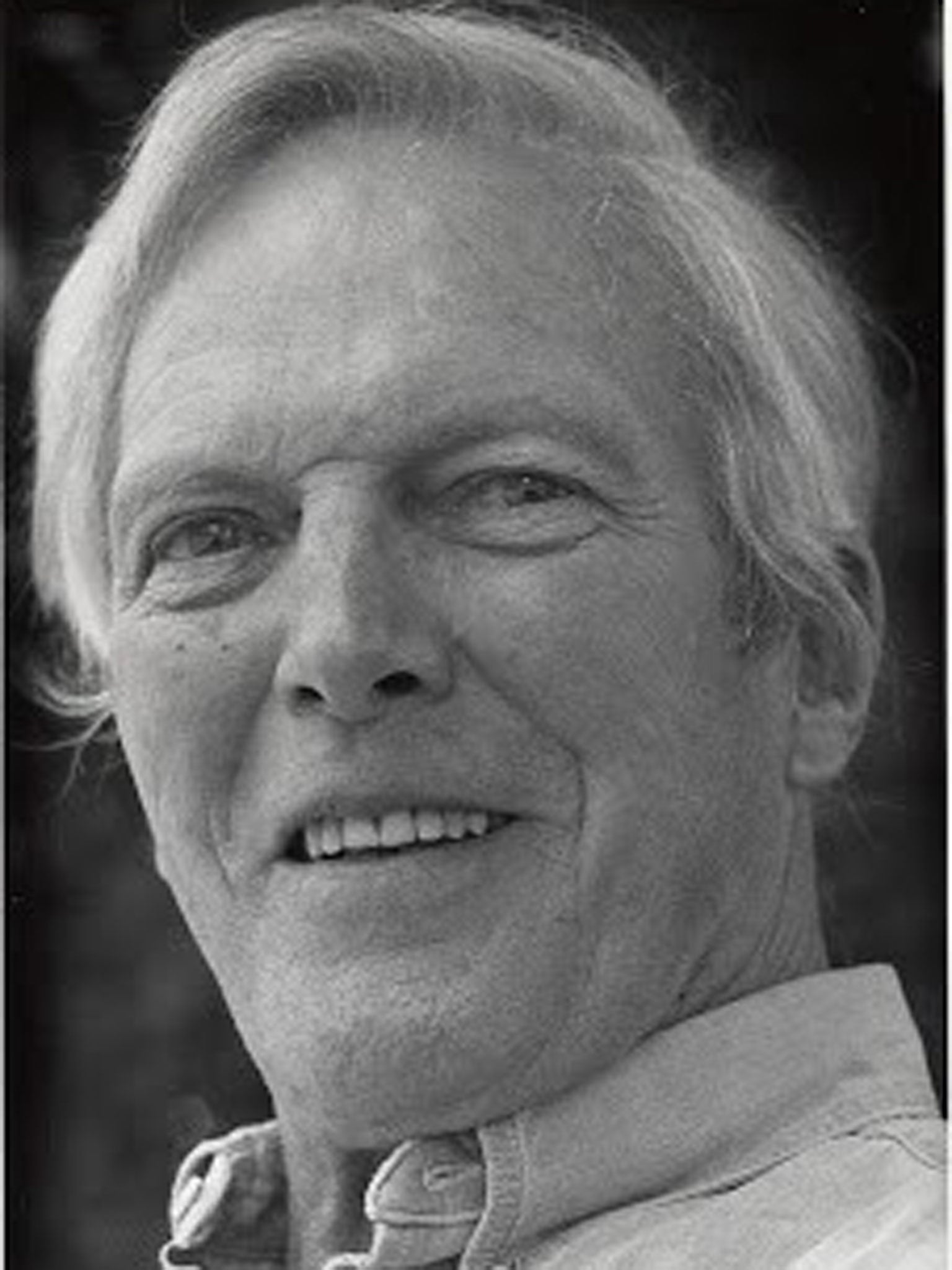F D Reeve: Poet, novelist and Russian translator

In the early stages of his career, the poet F D Reeve found himself best-known as the translator who accompanied Robert Frost on his 1962 visit to the Soviet Union, the man in the middle of Frost's showdown with Soviet leader Nikita Khrushchev. Years later, having established himself as a poet, novelist and translator, Reeve would find himself overshadowed again – by his eldest son, Christopher, who achieved fame playing Superman in the smash 1978 movie hit.
Ironically, Reeve himself had given up acting to pursue poetry. If anything, he was better-looking than his son; I was a student at Wesleyan University when Reeve was a leading light in the inter-disciplinary College of Letters and his poetry was receiving its highest acclaim. Richard Wilbur was the University's poet in residence, and the two shared an almost impossibly handsome patrician elegance. I found that most striking when they performed on campus with the Russian poet Andrei Vozhnesensky, reading translations of his work.
Franklin D'Olier Reeve was born in Philadelphia on 18 September 1928. He was educated at the elite Phillips Exeter Academy, and then at Princeton, where he studied under the poet R P Blackmur, and became entranced with Russian literature after reading Anna Karenina.
After graduation he worked in the Dakotas harvesting wheat, which would provide the material for his first novel, The Red Machines (1968). In 1951, he married Barbara Lamb; Christopher was born in 1952, Benjamin in 1953.
Reeve began graduate work at Columbia University, while working as a longshoreman and a jobbing actor. But he quit acting because he said he would have to "give up too much of my inner self" to continue writing poetry. In 1956, he and Lamb divorced; she took the children to Princeton, and married a stockbroker, while he married a fellow Columbia student, Helen Schmidinger. That marriage also ended in divorce, as did his third, to Ellen Swift. His relationship with Christopher would always be difficult, and didn't improve with the son's fame. In interviews, Christopher spoke of resentment toward his father over the bitterness of the marital break-up.
When Reeve gave his first public poetry reading, in New York, he shared the stage with Denise Levertov and the priest and future anti-war activist Daniel Berrigan. He received his PhD in 1958, and taught Russian at Columbia, where his first book, a study of Aleksandr Blok, was published in 1962. By then, he'd been selected for one of the first academic exchanges with the Soviet Academy of Sciences, which led to his selection as Frost's translator. Later he wrote a memoir of the trip, Robert Frost in Russia (1964).
After returning from Russia in 1962, he moved to Wesleyan, where he taught for 40 years. Originally head of the Russian department, he gave up tenure for an adjunct position in the College of Letters, which allowed him freedom to live, eventually in Vermont, and work elsewhere for parts of the year.
His most successful period of writing was between 1968 and 1973, when his first two collections of poetry, In the Silent Stones and The Blue Cat, were published by major publishers, as were his next three novels, Just Over the Border (1969), The Brother (1971) and White Colors (1973).
Reeve translated Turgenev's short novels, and produced two anthologies of Russian drama. His renaissance as a writer was triggered by his move to Vermont, where he settled with his fourth wife, creative writing professor Laura Stevenson. His third book of poetry, Nightway, finally appeared in 1987. Between 1992 and 2010 seven more books of poetry appeared from independent presses, as well as a selected poems, A World You Haven't Seen (2001). He wrote two books of short stories based around his working on the Hudson River docks. His last published work was the novel Nathaniel Purple (2012) set in rural Vermont.
Reeve died in Lebanon, New Hampshire, of complications from diabetes. Christopher, who was paralysed in a horse-riding accident, predeceased him in 2005. In a 2002 poem, "Home in Wartime" Reeve wrote:
If I die first, gather the lost years
with the late September apples. At sunset ghost me
beside you on the steps to watch
the tangerine-lavender clouds turn gray.
Go on, go on.
Michael Carlson
Franklin D'Olier Reeve, poet, academic and translator: born Philadelphia 18 September 1928; married four times (three sons, one daughter, one son deceased); died Lebanon, New Hampshire 28 June 2013.
Join our commenting forum
Join thought-provoking conversations, follow other Independent readers and see their replies
Comments
Bookmark popover
Removed from bookmarks